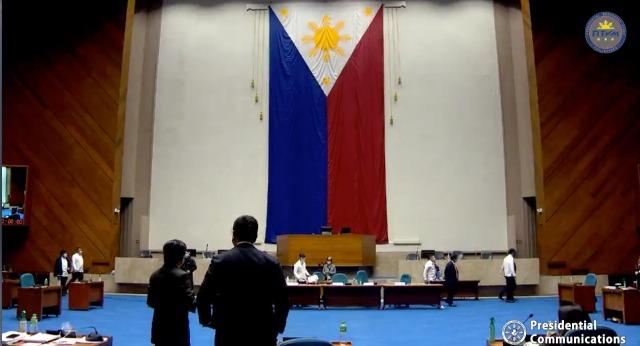House bill creating Medical Reserve Corps OK'd on 3rd reading

The House of Representatives approved on third and final reading the measure proposing the creation of a Medical Reserve Corps (MRC) which can support the country's health system during public health emergencies.
Obtaining 195 affirmative votes, House Bill 8999 or the Medical Reserve Corps Act was approved during Thursday's session. Six voted against the bill.
The proposed measure stated that the MRC could be composed of licensed physicians, including those who are retired and no longer practicing in a hospital setting; medical students who have completed four years of medical course, graduates of medicines and registered nurses; as well as other licensed allied health professionals.
The MRC will be under the supervision of the Health Emergency Management Bureau of the Department of Health, according to the bill. It should be "organized, trained, developed, and maintained so as to ensure their readiness to immediately respond to the call of service."
The measure mandates the DOH to prescribe a continuing training program for the MRC. The mobilization of the MRC shall be carried out by authority of the DOH Secretary, upon recommendation of the director of the HEMB.
Furthermore, the bill allows the President to direct the nationwide mobilization of the MRC to complement the Armed Forces of the Philippines Medical Corps in case of declaration of state of war, state of lawless violence, or state of calamity.
On the other hand, the DOH may also suggest to the President the enlistment of the AFP to supplement the mobilized MRC for the purpose of providing logistics and manpower for large-scale operations during public health emergencies.
The measure ensured that all MRC members would be accorded protection as provided by existing labor laws and standards.
No votes
Progressive lawmakers Carlos Isagani Zarate and Sarah Elago voted no on the proposed measure.
Zarate believes that the measure would not solve the issues being faced by the country's health system.
"Naninindigan ang kinatawan na ito na hindi matutugunan ang problemang pangkalusugan sa pamamagitan ng pagbubuo ng bagong militarisadong istruktura sa loob ng DOH," Zarate said.
"Sa pagtatayo ng Medical Reserve Corps, inililihis nito ang limitadong health workers, pondo at rekurso na sana ay magagamit natin para mapalakas ang health care system ng Pilipinas," he added.
For her part, Elago said the bill would just show the supposed "creeping militarization" of civilian agencies. Instead of creating MRC, she said the health sector must be provided with enough funds and manpower.
"Imbes na sapilitang pagdagdag ng medical personnel sa ilalim ng MRC, dapat tugunan ang brain drain, at kakapusan ng humane work opportunities sa healthcare," she said.
"Overworked at understaffed ang mga ospital at mga komunidad, hindi lang dahil kulang ng tao kundi matagal ng hugely underfunded ang sector ng kalusugan sa bansa," Elago added.—AOL, GMA News



